1371 Winter in Gastown
Pebble Swing
by Isabella Wang
Gibsons: Nightwood Editions, 2021
$18.95 / 9780889714069
Reviewed by Grace Lau
*
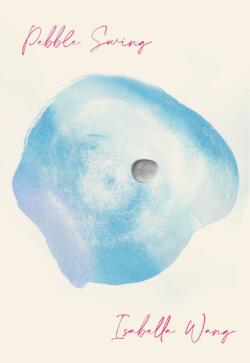 The dedication at the beginning of Pebble Swing contains a quote about love, and with every re-read, I still marvel at how love spills so generously from the pages. To be clear, the vessels are sometimes pain and sadness, but there is undoubtedly, steadfastly, love in abundance.
The dedication at the beginning of Pebble Swing contains a quote about love, and with every re-read, I still marvel at how love spills so generously from the pages. To be clear, the vessels are sometimes pain and sadness, but there is undoubtedly, steadfastly, love in abundance.
From the very first poem, “The Winter in Gastown,” Isabella Wang’s knack for drawing the beauty out of memories is evident:
Look up.
Feel the warm glow of these coloured lights
casting from rooftops and lampposts.
Do you know what it feels like to be swallowed
by constellations, like stars?
But it is when Wang dives into her memories of family that you really feel the gut punch hiding in her verse. “Lunar Feast” recounts a memory of her mother and father, preparing for one of, if not the biggest Chinese celebrations of the year.
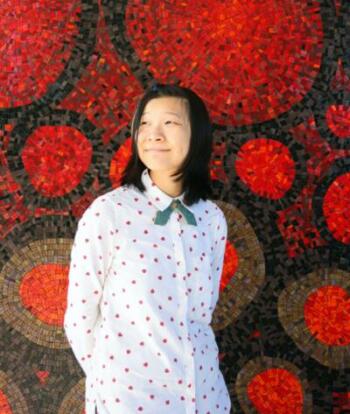
Her mother is, incredibly, making dumplings — for Wang’s dog. And this almost comical scene (which is nonetheless a very accurate depiction of what my own parents would likely think is completely reasonable to do for a beloved pet pup) is one of my favourite “gut punches” in the collection.
Wang’s mother delicately nurses the dumpling’s filling (made with kibble ground finely with mortar and pestle) between the tips of her silver chopsticks, then places it inside the paper-thin dumpling wrappers, then seals each one all the way around the edges, with her fingers. It is undeniably an act of tenderness. Of care. Of love. And yet, here is the final couplet for this scene:
With dogs, she says, you just need to feed them
and they remain grateful forever.
It is a nod, perhaps, to anyone who has ever played the game of “what is said and what is left unsaid” in conversations with parents. Anyway, this amount of subtext, in this single sentence, was a chess match that would’ve kept kid-Grace’s mind busy for hours.
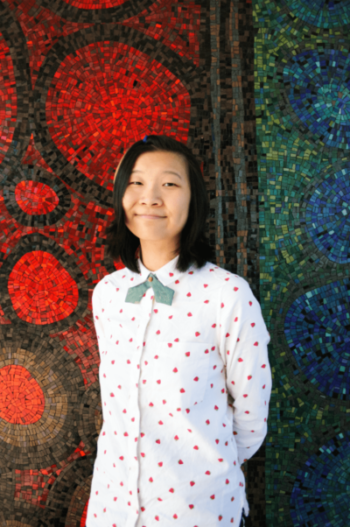
So far, I have read this collection about three and a half times. And right now, it is the ghazals that I keep returning to. They’re short, but each one captures a few fleeting seconds of imagery that’s just enough to pluck a string or two in the deepest parts of your soul.
I, Isabella, was born to a cradle full
of tempest rains, the white flower in blooms.
And another:
Tell me, does it hurt the ground more or the tree
if you are to extract it by its roots?
And another…
Each day I aspire to be more like water.
The kind that can be reached into, and still flow.
(As an admirer of Bruce Lee and having followed the events in Hong Kong over the past few years, this reminder to be like water resonates at an even deeper, more urgent, level.)
As you get deeper and deeper into the collection, you start to notice the community and the many poems written to, and for, friends and other poets. It’s almost like reading out of any collection I’ve read, and their call to community is invigorating, especially in an endeavour that can be as solitary as writing often is.
These poems — letters, you could even say — are warm and vulnerable, and reading them brings great delight. They are a wonderful illustration of why the word for happiness or joy in Chinese is “open heart.”

You don’t have to be a Vancouverite to enjoy the echoes of the city throughout the collection, from “Subcurrent,” to “On Visiting Habitat Island in Olympic Village for the First Time,” to “It’s Been Weeks of Forest Fires.”
In the same frank, unflinching way that Wang describes the two faces of love, Wang does not allow the reader to appreciate the beauty of the water, and the mountains, and the trees — without also acknowledging BC Hydro’s Site C dam, the ways in which we have failed Indigenous peoples as a country, and, well, the forest fires. Just as the collection’s title takes its name from the image of a pebble skipping across the water and the far-reaching ripples of our languages and family histories, so too are these elements all connected, inextricably linked to each other.
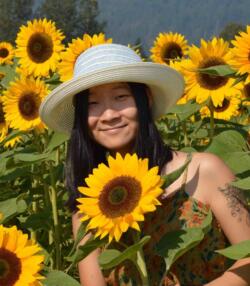
But above all, the collection always returns to love. Love for our environment, our community, and it’s fitting that the book ends with a serenade — a song for a lover — that encapsulates many of the elements of Wang’s collection together in one poem. There is vulnerability…
Because one doesn’t have to be made of glass to let light in…
… The awareness of the future we are building for the generations who aren’t yet here…
If I gave you a seed, would you promise to give it away
so that it has a chance to make the world better?
… And the very essence of love, which requires no explanation at all:
Because the word because is a beautiful word
you once used to explain to me why sunflowers are your favourite flower.
*
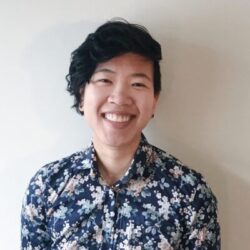
Grace Lau is a Hong-Kong-born, Chinese-Canadian writer living in Midland, Ontario. Her debut collection of poetry, The Language We Were Never Taught to Speak (Guernica Editions, 2021) was reviewed by Linda Rogers. Visit her website and connect on Twitter here. Editor’s note: Grace Lau has also reviewed books by Nancy Lee and Evelyn Lau for The Ormsby Review.
*
The Ormsby Review. More Books. More Reviews. More Often.
Publisher and Editor: Richard Mackie
The Ormsby Review is a journal service for in-depth coverage of BC books and authors in all fields and genres. The Advisory Board consists of Jean Barman, Wade Davis, Robin Fisher, Cole Harris, Hugh Johnston, Kathy Mezei, Patricia Roy, Maria Tippett, and Graeme Wynn. Scholarly Patron: SFU Graduate Liberal Studies. Honorary Patron: Yosef Wosk. Provincial Government Patron since September 2018: Creative BC
“Only connect.” – E.M. Forster
One comment on “1371 Winter in Gastown”